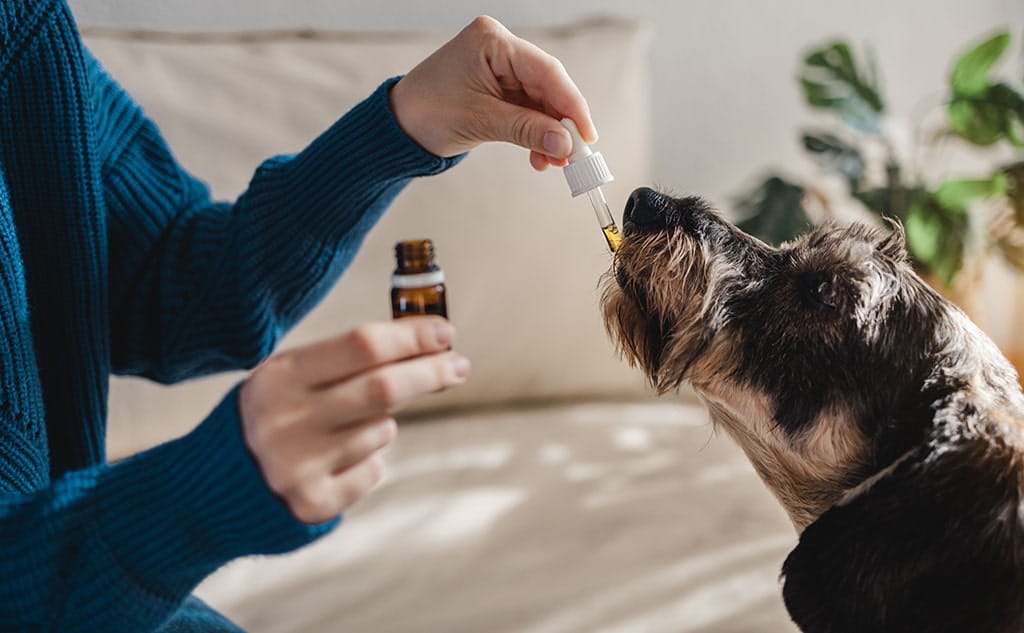
CBD for Pets: Understanding the Benefits, Risks, and Best Practices
As the use of CBD for humans continues to rise in popularity, many pet owners are also considering CBD for their furry companions. CBD, or cannabidiol, is a natural compound found in the cannabis plant that offers numerous potential health benefits without the psychoactive effects of THC. In this post, we’ll explore the benefits, risks, and best practices for using CBD with pets.
Benefits of CBD for Pets
CBD has been shown to have a variety of potential benefits for pets, including:
- Pain relief: CBD may help reduce pain and inflammation in pets with chronic pain conditions, such as arthritis or hip dysplasia.
- Anxiety relief: CBD has calming properties that may help reduce anxiety, fear, and stress in pets, especially those with separation anxiety or noise phobias.
- Seizure control: CBD has been shown to help reduce the frequency and severity of seizures in pets with epilepsy, and may also help manage other seizure-related symptoms.
- Anti-inflammatory properties: CBD may help reduce inflammation and swelling in pets with allergies, autoimmune disorders, or inflammatory bowel disease.
- Cancer treatment: While more research is needed, some studies suggest that CBD may have anti-tumor properties and could potentially be used in cancer treatment for pets.
Risks of CBD for Pets
While CBD is generally considered safe for pets, there are some potential risks to be aware of, including:
- Lack of regulation: Unlike medications, CBD products for pets are not currently regulated by the FDA. This means that there is no guarantee of safety or efficacy, and it’s important to choose high-quality, third-party tested products.
- Possible interactions with medications: CBD can interact with certain medications, particularly those metabolized by the liver. It’s important to talk to your veterinarian before giving your pet CBD if they are on any other medications.
- Side effects: Although rare, some pets may experience mild side effects from CBD, such as drowsiness, dry mouth, or low blood pressure. If your pet experiences any adverse effects, stop giving them CBD and talk to your veterinarian.
- THC content: Some CBD products may contain trace amounts of THC, which can be harmful to pets, especially dogs. Always choose products that are specifically formulated for pets and have been tested for THC content.
Best Practices for Using CBD with Pets
If you’re considering using CBD for your pet, here are some best practices to keep in mind:
- Talk to your veterinarian: Before giving your pet CBD, talk to your veterinarian to ensure that it’s safe and appropriate for your pet’s specific needs.
- Choose high-quality products: Look for products that are specifically formulated for pets and have been third-party tested for purity and potency.
- Start with a low dose: Start with a low dose of CBD and gradually increase it until you find the dose that works best for your pet.
- Monitor your pet: Watch your pet closely for any changes in behavior or symptoms after giving them CBD. If you notice any adverse effects, stop giving them CBD and talk to your veterinarian.
CBD may offer numerous potential health benefits for pets, including pain relief, anxiety relief, seizure control, anti-inflammatory properties, and even cancer treatment. However, it’s important to be aware of the potential risks and to use CBD responsibly and with your veterinarian’s guidance. By following these best practices and choosing high-quality CBD products, you can help your pet live a happier, healthier life.


